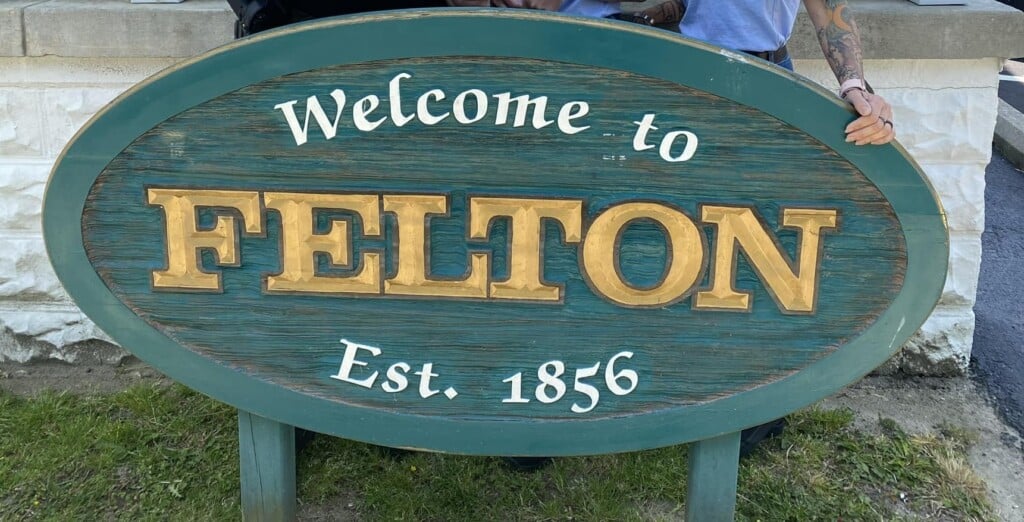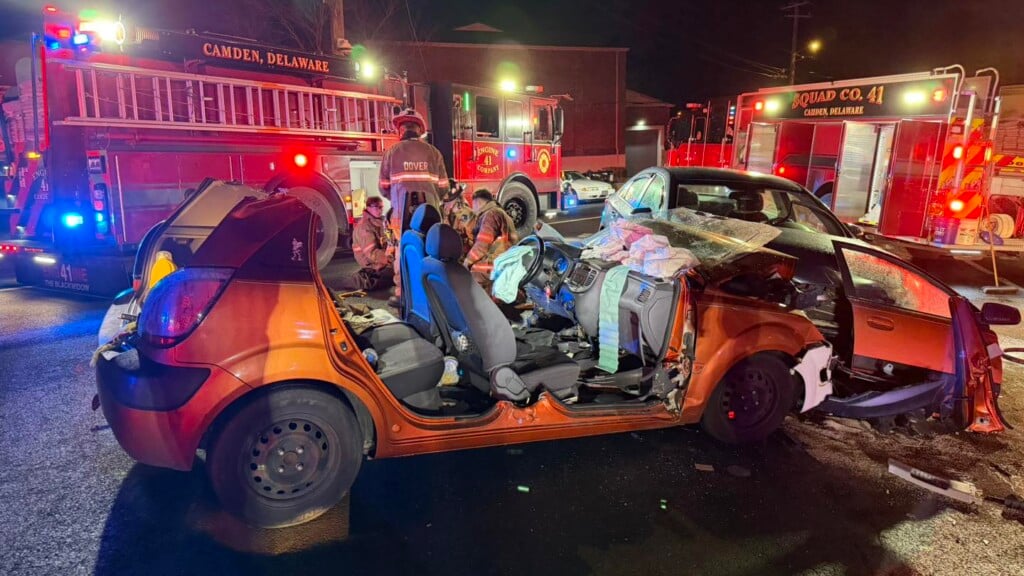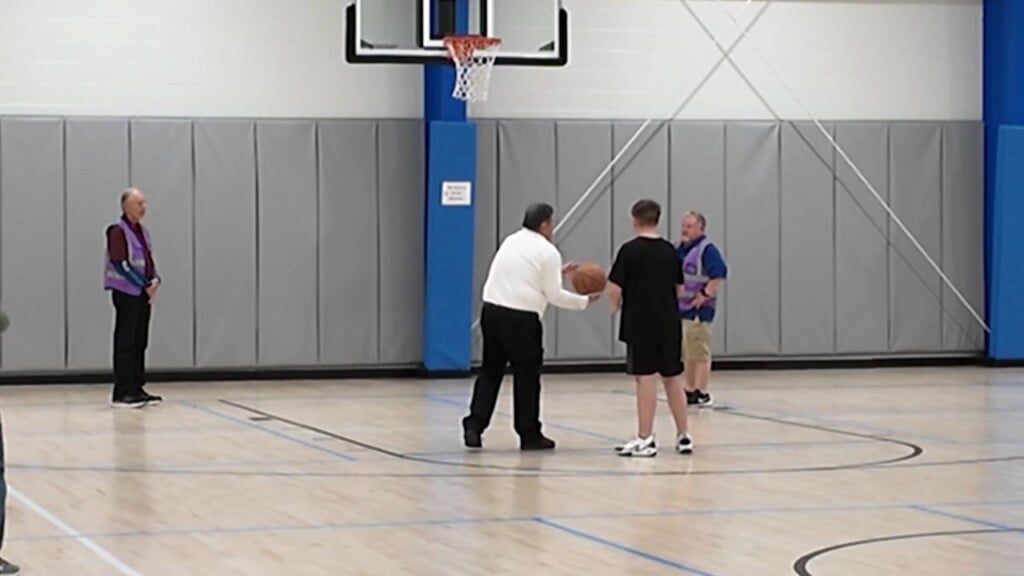Dover City Council amends, sets back proposed loitering ordinance
DOVER, Del. – An ordinance that would make changes to Dover’s loitering law is facing a set back. Extensive discussion around the proposed ordinance took place in Monday night’s City Council meeting. Ultimately, the ordinance was sent back to the city’s Safety Advisory Committee.
The ordinance looks to allow Dover Police Department to impose fines for loitering, rather than relying on the state statute. The state statue carries much heavier penalties, including a court appearance, and a criminal record.
Public Concerns
During the public comment session, concerned Delawareans called in. Davon “D” Marque Hall of Wilmington says he’s not happy to hear about the proposed change. He says he was urged by the ACLU of Delaware and the Delaware Poor People’s Campaign to speak on their behalf.
Hall pointed to dozens of other cities that have repealed similar ordinances when informed of their potential to violate the First Amendment. He added that Dover Police should focus their efforts on continuing to send mental health professionals out on police calls.
“We can’t have people that are hungry, starving, that need help feeling like criminals just because they exist. There’s people that aren’t even asking for change that feel criminalized, that don’t feel comfortable,” said Hall. “We’re talking about families, we’re talking about fathers, we’re talking about mothers, we’re talking about children out there.”
Amendments Offered
Several Council members spoke up to express concerns over language in the proposed ordinance.
“I have concerns, and question the word ‘prowls’, and also the phrase ‘especially considering the crime rate’. Based on a legal opinion submitted to us all, that concurs with my recommendation to remove this language from the ordinance,” said Council member Gerald Rocha. “I feel as though the word ‘prowls’ and ‘espcially considering the crime rate” allude to criminal activity. I think that language should be stricken from what we have proposed.”
Council member David Anderson agreed with Rocha’s issues on the language. He says it comes from the state ordinance, which Dover is looking to emulate with its own.
“This is right from the state language. It’s not something local, it’s not something that we had. It is state language. ‘Prowl’ has not legal definition,” said Anderson. “Therefore, it defaults to the dictionary definition. ‘Prowl’, according to Merriam Webster, is to move about or wander stealthily, or as in search of prey; to roam in a predatory manner.”
Fellow Council member Ralph Taylor agreed that the language should be stricken.
“We have to look in multiple dictionaries to get the definition, since there isn’t one provided to us by the state in the statute,” said Taylor. “Again, with that ambiguity, it leaves questions. If we can eliminate the questions and move forward with this, that would be something I’d be amenable to.”
Dover City Council voted unanimously to remove the language from the proposed ordinance.
Chief Offers Clarity on “Prowling”
“The circumstance where we talk about prowling, I would interpret that as suggestive of more than just a simple local law violation when someone’s prowling, in particular, during overnight hours were clearly in private property or places where they’re not normally permitted to be,” replied Chief Johnson. “We’re either going to find one of two things: a completely legitimate explanation for their presence and behavior, or we’re probably going to find something more than just prowling.”
How Police Respond to Loitering
“They’re really never the same. And, I’m not going to say we would be completely handcuffed, because I think that would overstate the limitation. It’s just that the officers would have to be very diligent in establishing the reasonable suspicion for an encounter,” said Chief Johnson.
“That could be totally not what’s happening, but that’s what the caller thinks. So, it would be incumbent upon the officer to get into the area, observe,” said Chief Johnson. “After a reasonable amount of time, you get into that zone where it isn’t the right thing to do to wait for someone to get robbed, because then you have a victim that might be injured. You’ve got to take steps to determine what that person’s presence there is, what the legitimate business there is that they have, and why do they keep looking at these passersby? Why do you keep zoning in on their packages?”
“There are other ways to articulate someone that you believe is engaged in unlawful drug distribution. Loitering is just one small element of the totality of that observation,” said Chief Johnson.
Looking Ahead
Taylor says if the ordinance is ultimately passed, he believes it will help marginalized populations, rather than hurt them.
“When it comes to the homeless and disenfranchised, they cannot afford court costs. They cannot afford the victim’s compensation, they cannot afford the video phone fees, they cannot afford all these other fees that come along with a full custody arrest,” said Taylor. “When it comes to our young people, at Delaware State University, Dover High, whatever the entity may be; I do not believe that giving someone a criminal record for the rest of their life for one mere decision that wasn’t even really criminal is the path that we should take.”
Council member William Hare offered another perspective; rather than cracking down on those populations, Hare says police are simply trying to do their jobs with more compassion. He cited recent numbers on loitering calls for service. In 2022, Dover Police Department answered 285 of those calls, and handled 270 of them without enforcement action.
Hare also cited one of his own personal experiences with reporting loitering. “The police are not targeting anybody. I’ve called the police two or three times on a person camping out in a tree in a neighborhood. The police came, and they didn’t write him a ticket. They asked if he was okay, they talked to him, and they gave him a ride somewhere,” he said.
Dover’s Safety Advisory Committee is set to meet on January 24th at 6 p.m. in Dover City Hall.


